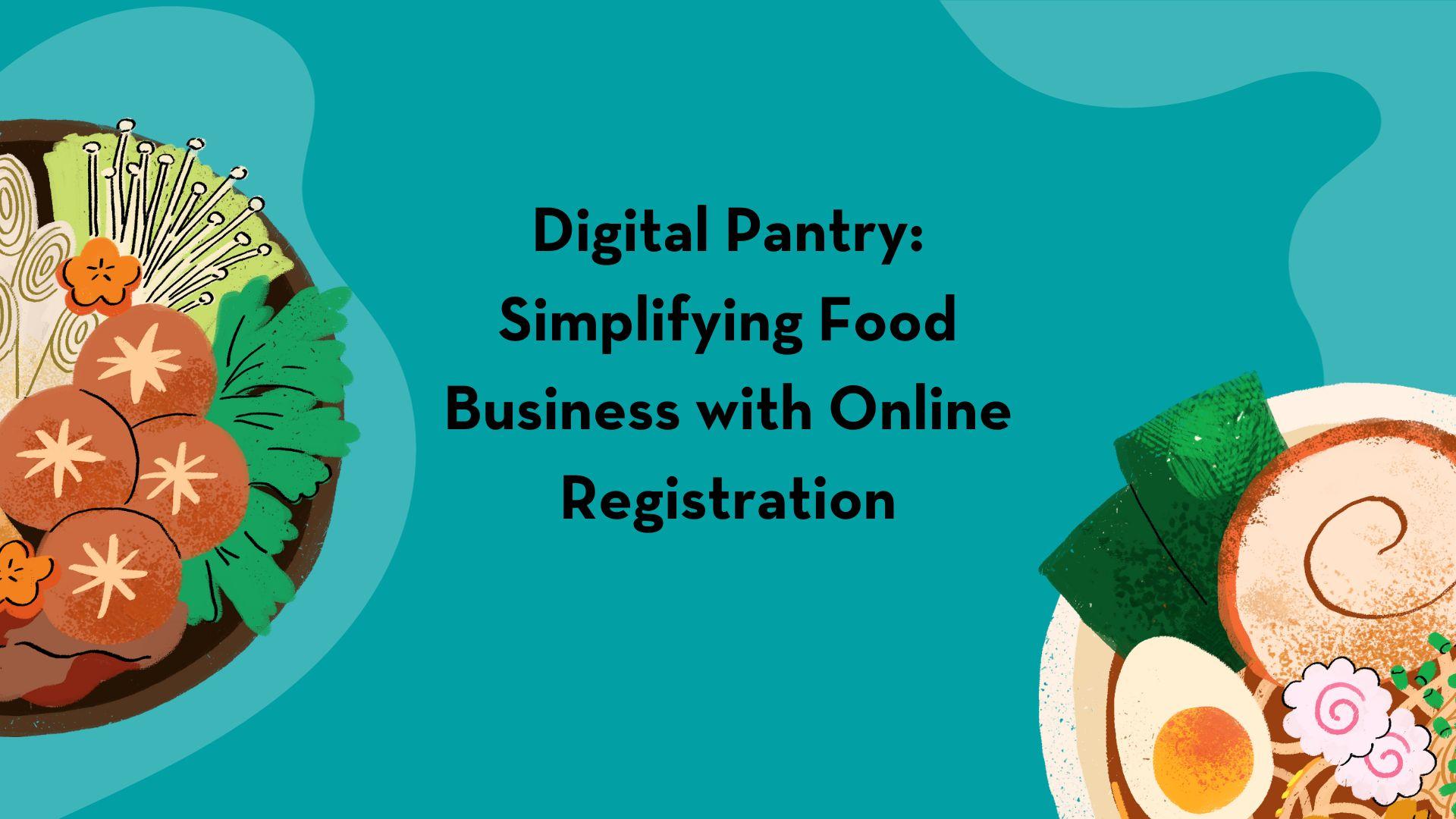In the fast-paced digital era, the culinary landscape is not exempt from the transformative power of technology. For entrepreneurs in the food industry, the journey begins with establishing an online presence, and a crucial aspect of this process is Online FSSAI Registration. This comprehensive guide explores the significance of online registration in the food business, delving into the benefits, step-by-step procedures, and the overarching impact it has on simplifying operations in the digital pantry.
The Digital Revolution in the Food Industry:
1. Changing Consumer Behaviour:
As consumers increasingly turn to online platforms for their culinary needs, the food industry has witnessed a shift in traditional business models. Online registration acts as a gateway, enabling food businesses to tap into the vast market of digital consumers.
2. Enhancing Visibility:
Establishing an online presence through registration ensures that a food business is visible to a broader audience. From artisanal bakeries to gourmet catering services, an online presence opens up avenues for exposure and customer engagement that were previously limited to brick-and-mortar establishments.
3. Streamlining Operations:
Online registration serves as a catalyst for streamlining business operations. From order processing to inventory management, digital tools integrated into the registration process enhance efficiency and allow businesses to focus on what they do best – creating exceptional culinary experiences.
The Role of Online Registration in the Food Business:
1. Regulatory Compliance:
One of the primary reasons for online registration in the food industry is regulatory compliance. Depending on the location and nature of the business, there are specific guidelines and standards that must be adhered to. Online registration ensures that businesses meet these requirements, avoiding legal complications and ensuring consumer safety.
2. Licensing and Permits:
Online registration is often the first step in obtaining the necessary licenses and permits to operate a food business. Whether it’s a food truck, a restaurant, or an online bakery, the registration process facilitates the acquisition of the required legal permissions to operate within the defined parameters of the law.
3. Building Trust with Consumers:
In the digital age, consumers prioritize transparency and authenticity. An online presence through registration not only meets regulatory requirements but also builds trust with consumers. Displaying necessary certifications and permits online creates a transparent and trustworthy image for the food business.
Simplifying Food Business with Online Registration:
Step 1: Research and Preparation
Before diving into the online registration process, food entrepreneurs should conduct thorough research on the specific regulations and requirements applicable to their type of business. This includes understanding local health codes, zoning laws, and licensing criteria.
Step 2: Choosing the Right Platform
Selecting the right online registration platform is crucial. Various government portals and private platforms cater to food business registrations. The chosen platform should align with the business’s specific needs and provide a user-friendly interface for a seamless registration experience.
Step 3: Providing Business Details
The registration process typically starts with providing basic business details. This includes the legal name of the business, its physical address, contact information, and the type of food products or services offered. Accuracy at this stage is paramount for a smooth process.
Step 4: Licensing and Permits
During the online registration process, entrepreneurs will likely be prompted to apply for the necessary licenses and permits. This may include food handler permits, health department approvals, and other certifications required to operate legally in the food industry.
Step 5: Food Safety Standards
Compliance with food safety standards is a critical aspect of online registration for food businesses. Entrepreneurs may need to outline their food safety protocols, including storage, handling, and preparation practices, to ensure the safety of consumers.
Step 6: Digital Documentation
The online registration process involves submitting digital copies of essential documents. This may include business registration certificates, food safety certificates, and any other documents required for legal compliance. Ensuring that these documents are clear and up-to-date is crucial.
Step 7: Payment and Processing Fees
Some online registration platforms may have associated fees for processing applications. Entrepreneurs should be prepared to make the necessary payments and keep records of transaction details for future reference.
Step 8: Confirmation and Certification
Upon successful completion of the online registration process, entrepreneurs will receive confirmation and, in many cases, a digital certification. This documentation serves as proof of registration and compliance with regulatory requirements.
Benefits of Online Registration in the Digital Pantry:
1. Time Efficiency:
Online registration eliminates the need for physical visits to government offices or regulatory bodies, saving valuable time for entrepreneurs. The entire process can be completed from the convenience of a computer or mobile device.
2. Accessibility:
Entrepreneurs can access and manage their registration details anytime, anywhere, with an internet connection. This level of accessibility facilitates efficient business operations and quick responses to any regulatory inquiries.
3. Cost Savings:
The digital registration process often incurs fewer costs compared to traditional methods. There are no expenses associated with travel, courier services, or physical documentation. This cost-saving aspect is particularly beneficial for startups and small businesses.
4. Real-Time Updates:
Online registration platforms provide real-time updates on the status of applications. Entrepreneurs can track the progress of their registration, receive notifications, and promptly address any additional requirements requested by regulatory authorities.
Suggested Reads : Food license renewal
Conclusion:
In the age of the digital pantry, online registration is not just a bureaucratic requirement; it is a strategic move that simplifies the complexities of operating a food business. From regulatory compliance to building consumer trust and enhancing operational efficiency, the benefits of online registration are multifaceted. As technology continues to reshape the landscape of the food industry, entrepreneurs who embrace the simplicity and accessibility of online registration position themselves for success in a dynamic and competitive market. The digital pantry beckons, and with the right registration approach, entrepreneurs can navigate its shelves with confidence and culinary creativity.



